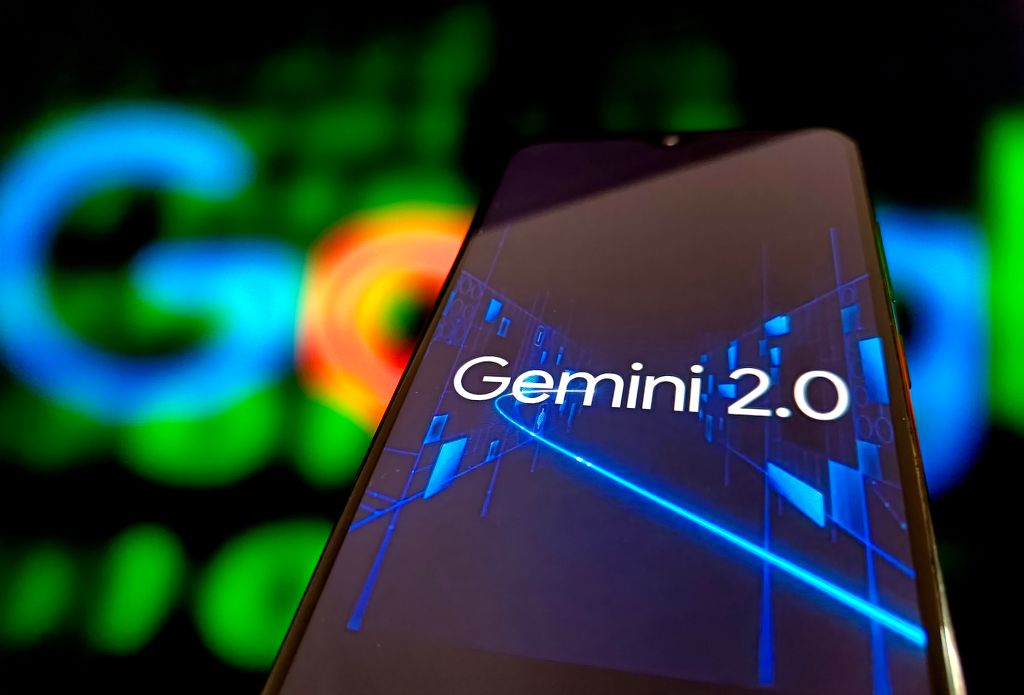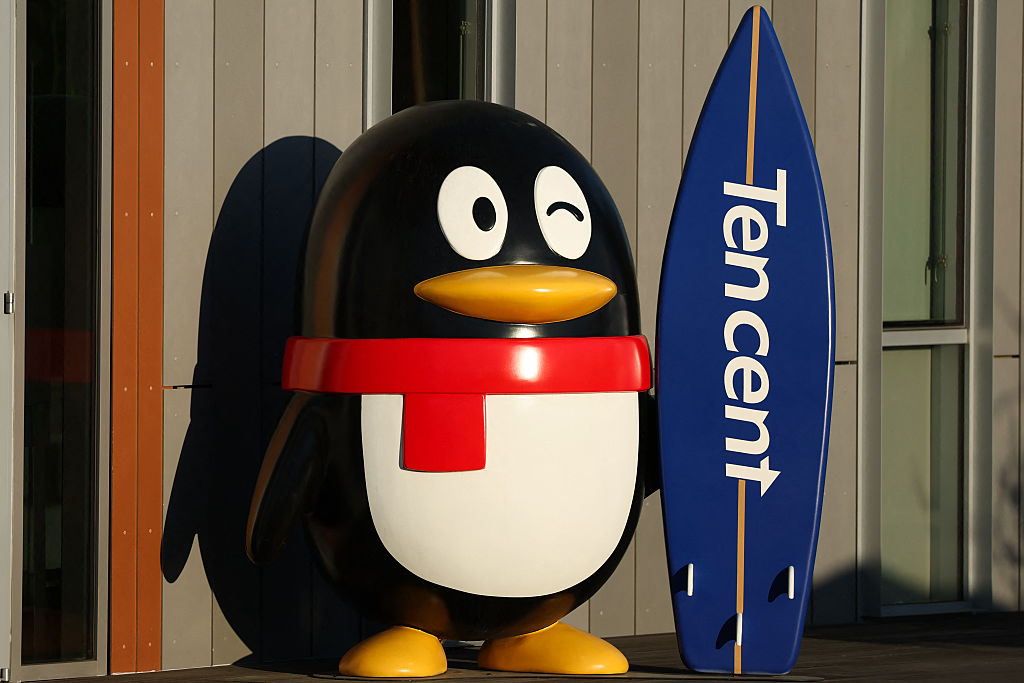Google shares bounce on Gemini 2.0 launch
Google has launched the latest version of its Gemini AI platform, and markets have responded positively. Is it time to buy Google shares?


Get the latest financial news, insights and expert analysis from our award-winning MoneyWeek team, to help you understand what really matters when it comes to your finances.
You are now subscribed
Your newsletter sign-up was successful
Want to add more newsletters?

Twice daily
MoneyWeek
Get the latest financial news, insights and expert analysis from our award-winning MoneyWeek team, to help you understand what really matters when it comes to your finances.

Four times a week
Look After My Bills
Sign up to our free money-saving newsletter, filled with the latest news and expert advice to help you find the best tips and deals for managing your bills. Start saving today!
Shares in Google’s parent company Alphabet (NASDAQ:GOOGL) jumped 5.5% on Wednesday (11 December), hitting a new all-time high in the process, as the company announced the launch of Gemini 2.0, its latest family of artificial intelligence (AI) large language models (LLMs).
AI has been one of the most pressing concerns for big tech companies over the last two years, ever since the launch of ChatGPT brought generative AI into the public consciousness and sparked a feeding frenzy for stocks like Nvidia (NASDAQ:NVDA) and its ‘Magnificent Seven’ associates, including Alphabet.
The launch marks Google’s entry into what it calls “the agentic era” of AI. These models, it says, “can understand more about the world around you, think multiple steps ahead, and take action on your behalf, with your supervision”.
MoneyWeek
Subscribe to MoneyWeek today and get your first six magazine issues absolutely FREE

Sign up to Money Morning
Don't miss the latest investment and personal finances news, market analysis, plus money-saving tips with our free twice-daily newsletter
Don't miss the latest investment and personal finances news, market analysis, plus money-saving tips with our free twice-daily newsletter
The new family of products “promises to be faster and smarter” says Matt Britzman, senior equity analyst at Hargreaves Lansdown. “Alphabet sees these models as a step toward the next chapter in language models where they handle tasks on your behalf, with highlights like better multitasking, complex reasoning, and tool use.”
Gemini 2.0 is already being embedded into certain products, including the core Gemini chatbot. Over the coming months, Google says, the advanced reasoning and problem-solving capabilities of this new generation will be incorporated into a wide range of services, such as Google Search, its Gemini Flash service, and its experimental universal AI assistant, Astra.
What can you use Google Gemini 2.0 for?
Gemini 2.0 is a family of LLMs, the complex machine learning programs that underpin AI applications. So, different Google products will utilise the latest generation of Gemini in different ways. The AI overviews that are often returned in Google searches will, for example, hopefully become more relevant and useful, once the latest LLMs are incorporated.
The advanced capabilities, though, potentially point towards entirely new use cases. For example, Google promises a new feature called Deep Research, which it says “uses advanced reasoning and long context capabilities to act as a research assistant, exploring complex topics and compiling reports on your behalf”. Subscribers to the premium tier, Gemini Advanced, already have access, according to Google’s release.
Software developers, meanwhile, will get a new product, Jules, Google’s AI assistant for developing code. Jules, according to Google, works directly within a GitHub workflow and can, under the supervision of the developer, identify code problems, before developing and executing a plan to address them.
Is now a good time to buy Google shares?
Now could be a good time to buy Google’s shares, as the latest release appears to make up ground for the business that commentators had felt it had lost to its rivals.
“While it’s still early days for this tech, investors liked what they saw from a name that’s sometimes seen as being behind in the AI race,” says Britzman.
Another tailwind for Google’s share price coincided with Gemini’s release, in the form of US inflation data that showed a small increase, in line with prior expectations, to 2.7% during November.
The announcement on Wednesday paves the way for expected rates cuts next year, which will likely be beneficial for high growth tech stocks like Alphabet.
“The Nasdaq index yesterday smashed through the 20,000 barrier for the first time,” says Dan Coatsworth, investment analyst at AJ Bell. “In hitting this latest milestone, the Nasdaq has nearly doubled in two years.
“To put that into context, the FTSE All-Share is up around 11% over the same timeframe.”
Recently, Alphabet has been plagued by the threat of a breaking up of Google – which the US courts ruled in August is effectively a monopoly – into smaller chunks. This had been weighing on its share price; in the six months to 6 December, the stock had fallen 1.1%.
Donald Trump’s election win could potentially change that, though. Reuters reported in November that experts believe Trump will change course on the antitrust measures that threaten the breakup, and potentially intervene in the regulators’ decision-making.
All in all, there is lots to be positive about for Google. Share price gains of 12% over the last week reflect market optimism, and now could be a good time to buy Google shares.
Investing in Google means buying shares in Alphabet, the parent company. Alternatively, an investment trust or ETF that holds the stock could be another means of gaining exposure. For example, the SPDR MSCI World Communication Services UCITS ETF (LON:WTEL) has an 18.6% weighting towards Alphabet at time of writing.
Get the latest financial news, insights and expert analysis from our award-winning MoneyWeek team, to help you understand what really matters when it comes to your finances.

Dan is a financial journalist who, prior to joining MoneyWeek, spent five years writing for OPTO, an investment magazine focused on growth and technology stocks, ETFs and thematic investing.
Before becoming a writer, Dan spent six years working in talent acquisition in the tech sector, including for credit scoring start-up ClearScore where he first developed an interest in personal finance.
Dan studied Social Anthropology and Management at Sidney Sussex College and the Judge Business School, Cambridge University. Outside finance, he also enjoys travel writing, and has edited two published travel books.
-
 Should you buy an active ETF?
Should you buy an active ETF?ETFs are often mischaracterised as passive products, but they can be a convenient way to add active management to your portfolio
-
 Power up your pension before 5 April – easy ways to save before the tax year end
Power up your pension before 5 April – easy ways to save before the tax year endWith the end of the tax year looming, pension savers currently have a window to review and maximise what’s going into their retirement funds – we look at how
-
 Three key winners from the AI boom and beyond
Three key winners from the AI boom and beyondJames Harries of the Trojan Global Income Fund picks three promising stocks that transcend the hype of the AI boom
-
 'AI is the real deal – it will change our world in more ways than we can imagine'
'AI is the real deal – it will change our world in more ways than we can imagine'Interview Rob Arnott of Research Affiliates talks to Andrew Van Sickle about the AI bubble, the impact of tariffs on inflation and the outlook for gold and China
-
 Three promising emerging-market stocks to diversify your portfolio
Three promising emerging-market stocks to diversify your portfolioOpinion Omar Negyal, portfolio manager, JPMorgan Global Emerging Markets Income Trust, highlights three emerging-market stocks where he’d put his money
-
 New year, same market forecasts
New year, same market forecastsForecasts from banks and brokers are as bullish as ever this year, but there is less conviction about the US, says Cris Sholto Heaton
-
 How to profit from the UK leisure sector in 2026
How to profit from the UK leisure sector in 2026The UK leisure sector had a straitened few years but now have cash in the bank and are ready to splurge. The sector is best placed to profit
-
 Metals and AI power emerging markets
Metals and AI power emerging marketsThis year’s big emerging market winners have tended to offer exposure to one of 2025’s two winning trends – AI-focused tech and the global metals rally
-
 Quality emerging market companies with consistent returns
Quality emerging market companies with consistent returnsOpinion Mark Hammonds, portfolio manager at Guinness Global Investors, selects three emerging market stocks where he'd put his money
-
 Coreweave is on borrowed time
Coreweave is on borrowed timeAI infrastructure firm Coreweave is heading for trouble and is absurdly pricey, says Matthew Partridge